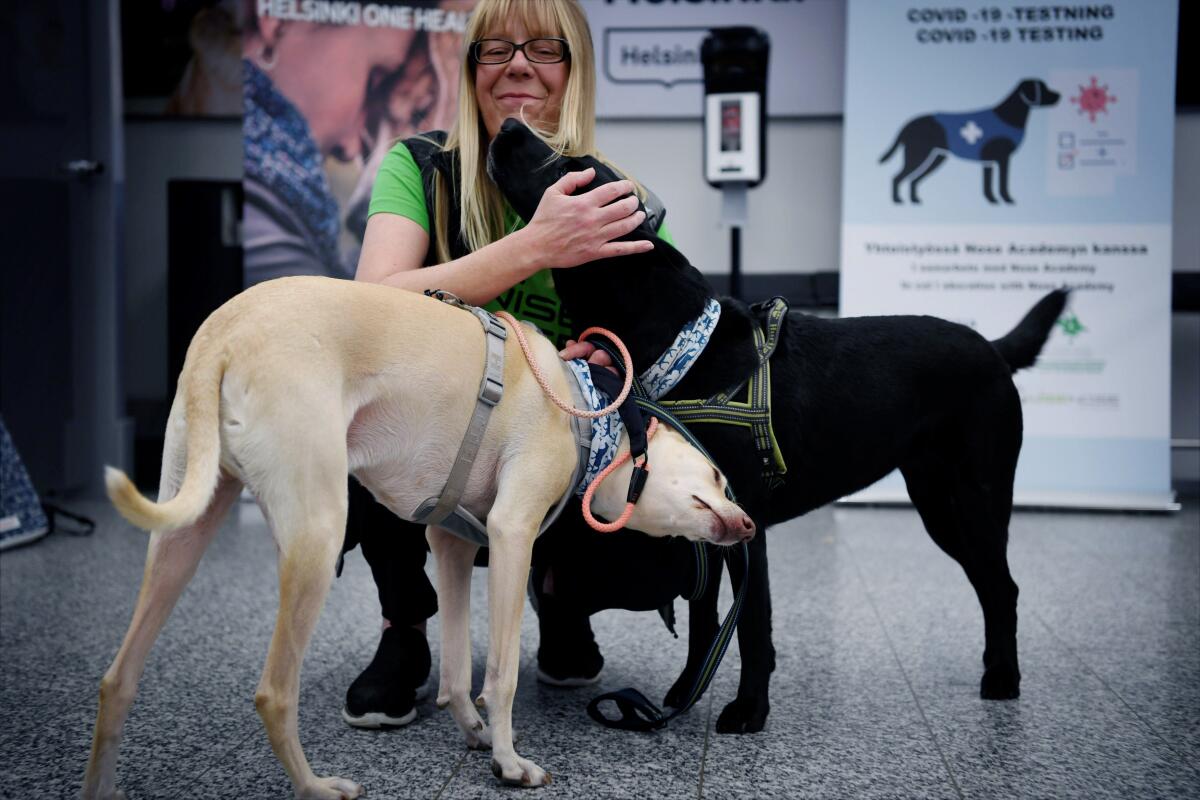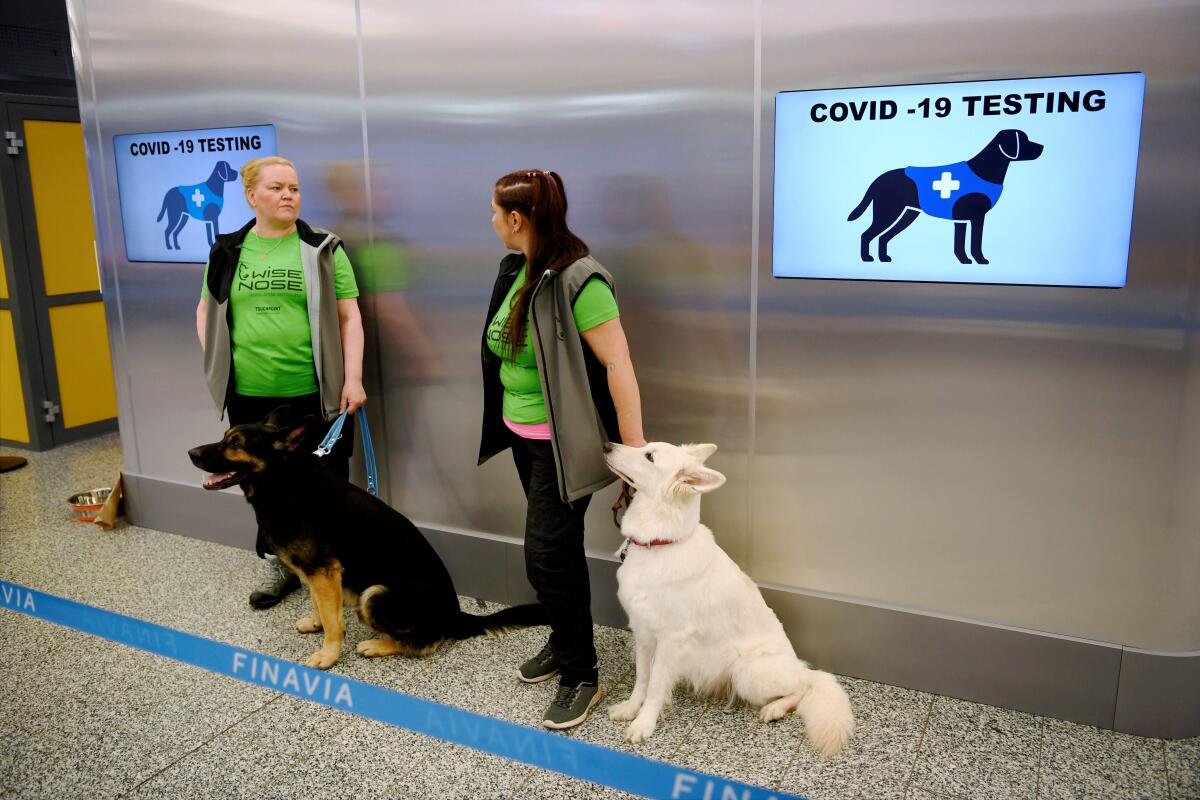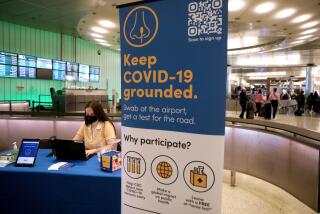Bark once if positive: Finland deploys coronavirus-sniffing dogs at main airport

- Share via
HELSINKI, Finland — Finland has deployed coronavirus-sniffing dogs at its main international airport in a four-month trial of what could become a cost-friendly and quick way to identify infected travelers instead of through testing.
Four dogs of different breeds trained by Finland’s Smell Detection Assn. — also known as Wise Nose — started working Wednesday at the Helsinki Airport as part of the government-financed trial.
“It’s a very promising method. Dogs are very good at sniffing,” said Anna Hielm-Bjorkman, a University of Helsinki professor of equine and small-animal medicine.
She said that, if the trial is successful, sniffer dogs could deployed at hospitals, ports, elderly people’s homes, sports venues and cultural events.

While researchers in several countries, including Australia, France, Germany and the United States, are also studying canines as coronavirus detectors, the Finnish trial is among the largest so far.
Hielm-Bjorkman said Finland was the second country in the world after the United Arab Emirates — and the first in Europe — to assign dogs to sniff out the coronavirus. A similar program started at Dubai International Airport over the summer.
The coronavirus is detected in a family dog, possibly for the first time, in North Carolina.
Passengers who agree to take a free test under the voluntary program in Helsinki do not have direct physical contact with a dog.
They are asked to swipe their skin with a wipe which is then put into a jar and given to a dog waiting in a separate booth. The participating animals — E.T., Kossi, Miina and Valo — previously underwent training to detect other diseases such as cancer and diabetes.
It takes the dog a mere 10 seconds to sniff the passenger samples before it gives its assessment by scratching with its paw, lying down or barking. The entire process should be completed within one minute, according to Hielm-Bjorkman.
If the result is positive, the passenger is urged to take a standard coronavirus test to check the dog’s accuracy.
In its effort to make the airport security screening process faster, the Transportation Security Administration is employing new high-tech baggage scanners, facial-recognition cameras and “automated lanes” to eliminate passenger gridlock.
Timo Aronkyto, the deputy mayor of Vantaa, the region near Helsinki where the airport is located, said the program is costing about $350,000, which he said was remarkably less than other methods of mass-testing arriving passengers.
The four sniffer dogs are set to work at the airport in shifts, with two on duty at a time while the other two get a break.
“Dogs need to rest from time to time. If the scent is easy, it doesn’t wear out the dog too much. But if there are lots of new scents around, dogs do get tired easier,“ Anette Kare of the Smell Detection Assn. said as she gently patted E.T., her trained white shepherd.
More to Read
Sign up for Essential California
The most important California stories and recommendations in your inbox every morning.
You may occasionally receive promotional content from the Los Angeles Times.









